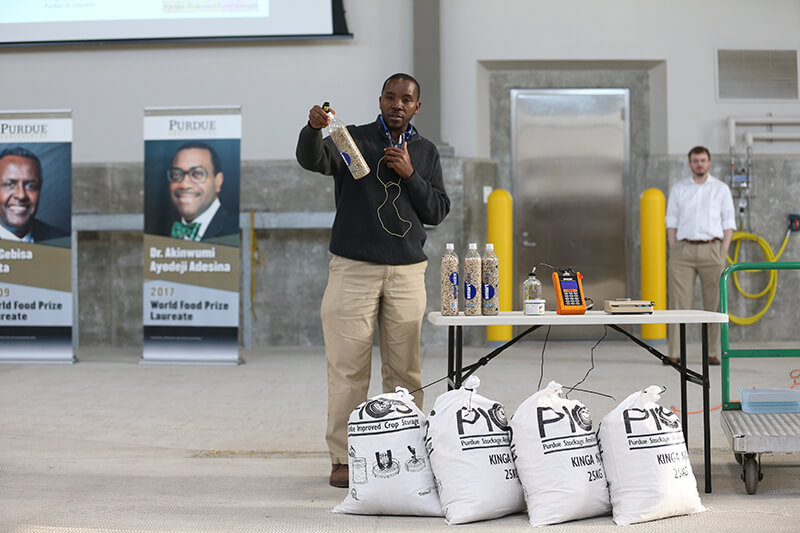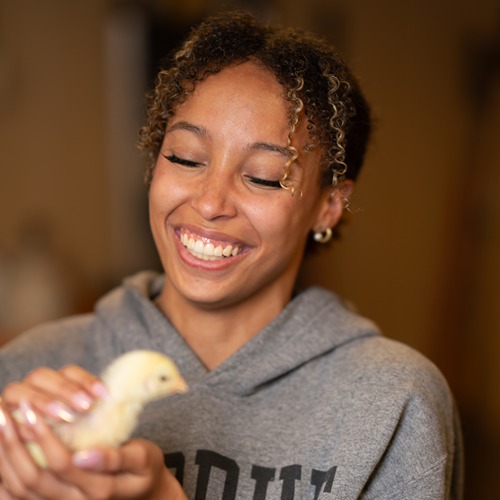PICS receives national award for exemplary community engagement
In recognition of its extraordinary community engagement initiatives, the Association of Public and Land-grant Universities (APLU) has named Purdue University and Purdue Improved Crop Storage (PICS) an exemplary designee.
Launched in 2007, the PICS program disseminates triple-layered, airtight storage sacks that enable farmers to store harvested crops, like cowpeas, maize, wheat and rice, safely for extended periods of time without the use of pesticides. This technology improves farmers’ household food security as well as income through access to better market prices. PICS first focused on improving the livelihood of millions of smallholder farmers in Sub-Saharan Africa. It has now expanded to Asia and Central and South America.
The statistics for PICS speak for themselves in describing the project’s reach.
PICS bags have been commercialized in more than 34 countries in Africa, Asia and, more recently, Central America and the Caribbean. More than 68,000 communities have received training that has reached an estimated seven million farmers. From 2007 to September 2020, plastic factories around the world manufactured and sold more than 25 million PICS bags to farmers and other users, according to Dieudonné Baributsa, PICS program director and associate professor of entomology.
A key facet of the project, Baributsa explained, is the engagement of communities, development partners and the private sector in implementing and scaling up use of the PICS technology.
“You teach farmers, but at the same time you learn from them what needs to be improved. Initially, we didn’t think the PICS bags would protect other crops, since they were originally developed for cowpeas (black-eyed peas),” Baributsa said. “A few years into the project we learned from farmers that the PICS bags had the potential to store a variety of crops other than cowpea, including maize, rice, peanuts and common beans. Smallholder farmers were right, as research confirmed later.”
Baributsa said plans for the next five years of PICS are ambitious as the technology expands its reach in South America and India. PICS also plans to continue to grow in Africa by improving access to loans so farmers can store more grain in hermetic bags and generate more income.
"An award like this is so important to the project because it recognizes the efforts of the PICS team and Purdue University in engaging and improving the livelihood of communities around the word,” said Karen Plaut, the Glenn W. Sample Dean of Purdue Agriculture. “The more people know about this technology, the faster it will spread. Food security is key to our security as a global community. The PICS team makes a tremendous difference in bringing that security to communities throughout the world.”







